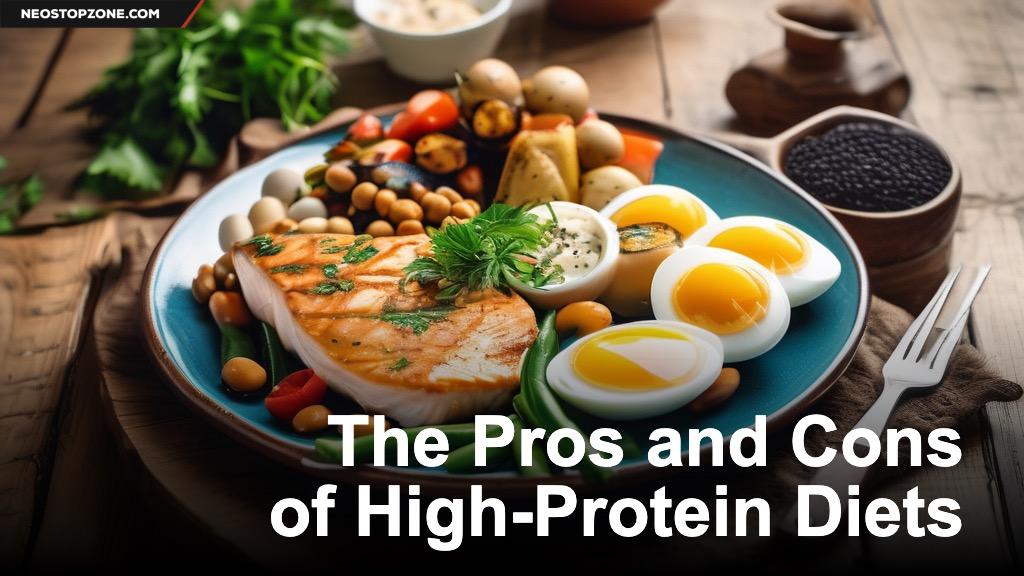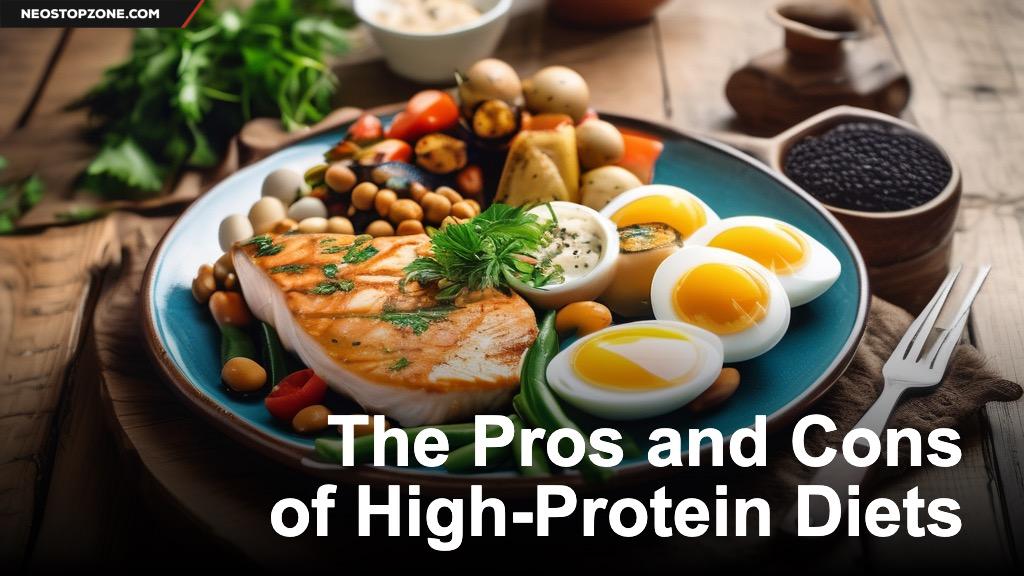
Introduction
In recent years, high-protein diets have gained immense popularity as a means to lose weight and build muscle. These diets typically involve consuming large amounts of protein while limiting carbohydrate intake. While some people swear by the benefits of high-protein diets, others remain skeptical. In this article, we will explore the pros and cons of high-protein diets, helping you make an informed decision about whether it is the right choice for you.
Benefits of High-Protein Diets
1. Weight loss
One of the main advantages of a high-protein diet is its effectiveness in shedding excess pounds. Protein has a higher thermic effect compared to carbohydrates and fats, meaning that your body burns more calories during digestion. Additionally, protein increases satiety and reduces hunger cravings, leading to a lower calorie intake.
2. Muscle growth and repair
Protein is essential for building and repairing muscles. By consuming higher amounts of protein, individuals engaging in strength training or regular exercise can promote muscle growth and recovery. This is particularly beneficial for athletes and those looking to increase their muscle mass.
3. Improved metabolism
High-protein diets can boost your metabolism, helping you burn more calories throughout the day. Research has shown that protein increases the production of specific hormones that regulate metabolism, resulting in increased energy expenditure.
4. Blood sugar control
Protein has minimal impact on blood sugar levels when compared to carbohydrates. By reducing carbohydrate intake and increasing protein consumption, individuals with diabetes or insulin resistance can better manage their blood sugar levels.
Drawbacks of High-Protein Diets
1. Nutritional imbalance
Relying heavily on protein sources can lead to a deficiency in other essential nutrients, such as fiber, vitamins, and minerals. It is crucial to ensure a well-rounded diet that includes a variety of foods to maintain optimal health.
2. Kidney strain
High-protein diets can put a strain on the kidneys, especially in individuals with pre-existing kidney conditions. The breakdown of protein produces waste products that must be filtered by the kidneys. Consulting a healthcare professional before starting a high-protein diet is advisable, especially for those with kidney issues.
3. Potential for nutrient deficiencies
While protein is important for muscle growth and repair, excessive consumption may lead to a reduction in other macronutrients like carbohydrates and fats, which are equally necessary for overall health. A balanced diet is key to obtaining all the necessary nutrients.
4. Long-term sustainability
High-protein diets can be challenging to sustain in the long run due to their strict dietary restrictions. The limited variety of foods can result in boredom and make it difficult to stick to the diet for an extended period. It is crucial to find a diet that is both effective and sustainable for your lifestyle.
Conclusion
High-protein diets have both pros and cons, and it is essential to weigh them carefully before embarking on such a diet. While they can aid in weight loss, muscle growth, and blood sugar control, they also come with potential drawbacks such as nutrient imbalances and strain on the kidneys. It is advisable to consult with a healthcare professional or a registered dietitian before making any significant dietary changes.
FAQs (Frequently Asked Questions)
1. Is a high-protein diet suitable for everyone?
A high-protein diet may not be suitable for individuals with certain medical conditions, such as kidney disease. It is always best to consult with a healthcare professional before making any drastic changes to your diet.
2. Can high-protein diets lead to weight gain?
Consuming excess calories, even from protein, can lead to weight gain. It is important to maintain a calorie balance and not solely rely on protein for weight management.
3. Are there any side effects of high-protein diets?
Some individuals may experience digestive issues, such as constipation or diarrhea, when following a high-protein diet. Drinking plenty of water and incorporating fiber-rich foods can help alleviate these side effects.
4. How much protein should I consume daily?
The recommended daily protein intake varies based on factors such as age, sex, weight, and activity level. It is best to consult with a registered dietitian who can provide personalized recommendations.
5. Can high-protein diets be harmful in the long term?
Long-term adherence to high-protein diets without considering the overall nutrient balance can potentially lead to health problems. It is crucial to maintain a balanced diet that includes a variety of food groups.
Incorporating a high-protein diet into your lifestyle can have its benefits, but it’s important to consider the potential drawbacks and consult with a healthcare professional. Finding a balance that works for you is key to achieving your health and fitness goals.

